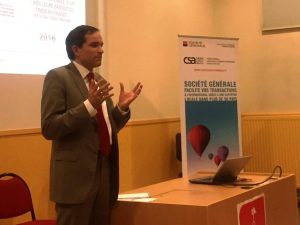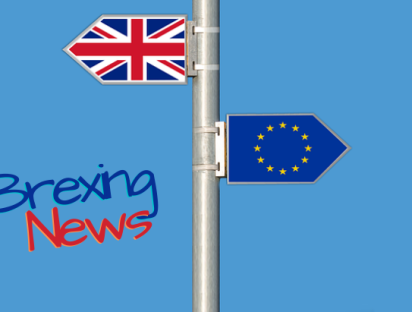
Thomas Hoerber gives his analysis of Brexit.
The recent meeting of the Société Générale entrepreneurial club « Les rencontres des chênes », held at ESSCA Angers, focused on « Global Economic Perspectives ». In the debate it became quickly clear that politics do have a serious impact on the evolution of these perspectives, and one of the most impactful eventsof 2016, especially for French entrepreneurs, is of course Brexit.
Thomas Hoerber was asked to address the topic in a broader European perspective. He recalled that the European Union is based on four fundamental freedoms of movement, concerning people, capital, services and goods. How difficult it is to separate the four is illustrated by the City of London, which needs freedom of movement of capital and services, principally, but also of people. When Britain joined the EU in 1973, it was still a highly industrialised country, needing essentially the free movement of goods for exporting machinery and cars, for example. Today, Britain is essentially a service industry driven by the financial sector embodied in the City. As a result, Britain is today, at the moment of Brexit, actually more dependent on access to the EU’s common internal market than in 1973.
According to Thomas, politically, Brexit will be bad for both the EU and Britain. Whatever the different perceptions, there is no doubt that the political integration process of Britain is very evident. At the end of the 1950s Britain realised that it had to get into the EU. These efforts were thwarted twice by Charles de Gaulle when he refused British membership twice in 1963 and 1967 respectively. In 1973, Britain finally joined under his successor Georges Pompidou. The major change between 1973 and today is simply that British dependence on the EU is greater than it was. The EU is more than just a Free trade area. It is a political project with common institutions which one might consider weak, perhaps still too weak, and which may have to become stronger.
Separating business and the political framework in which it is carried out simply does not make sense. The « Rencontres du Chêne » thus reminded participants that it is essential to have a good understanding of the political dynamics in which we live.




